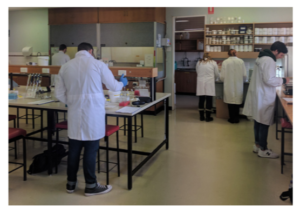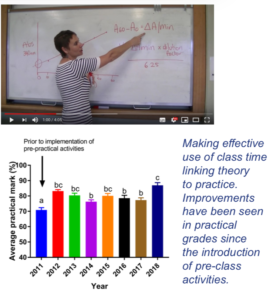- About
- Members
- Join
- Member log in
- Membership Renewal
- Member directory
- Life Members
- ASPS Life Member Professor Graham Farquhar
- ASPS Life Member Associate Professor Hendrik (Hank) Greenway
- ASPS Life Member Dr Marshall (Hal) D Hatch
- ASPS Life Member Dr Paul E Kriedmann
- ASPS Life Member Dr Mervyn Ludlow
- ASPS Life Member Emeritus Professor Rana Munns
- ASPS Life Member Conjoint Professor Christina E Offler
- ASPS Life Member Professor (Charles) Barry Osmond
- ASPS Life Member Emeritus Professor John W Patrick
- ASPS Life Member Dr Joe Wiskich
- Corresponding Members
- Elected Fellows
- Events
- Awards & Funding
- Employment
- Publications
- Research
- Teaching
- Menu
Phytogen December issue and GPC bulletin
17 December 2018
Dear ASPS members,
As we head into the new year it’s a good time to check your ASPS membership is up to date.
Login here to check when your current membership is paid to. You can use your ASPS login or the e-mail address this newsletter was sent to. You can also request a new password be sent to you.
https://www.asps.org.au/renewal
The December issue of Phytogen is available here.
December E-Bulletin /
GPC SURVEYGPC surveyhttps://goo.gl/Xj8QT5.
Latest News /
View more…If you have news you would like us to share on our website, please contact isabel@globalplantcouncil.org
This past November, 33 new breaking news stories were posted on the GPC website including…
Scientists identify mechanism that controls leaf growth and shape
In autumn, it is not only the colours that catch the eye, but also the different sizes and shapes of leaves. But what makes leaves of different plants differ so much in their shapes? Scientists have now discovered how a protein called LMI1 can control leaf growth and shape.
In New Phytologist: Plants find ways to survive no matter the terrain
Researchers have discovered that a fascinating plant employs two mechanisms to survive, no matter where it grows. New research, published in New Phytologist, looked at Aethionema arabicum, also known as “stone cress”, and found the plant is unique in its seed and fruit dispersal strategies.
Small Genetic Differences Turn Plants into Better Teams
Diverse communities of plants and animals typically perform better than monocultures. However, the mechanisms that are responsible for this have so far been a mystery to science. Biologists have now been able to identify the genetic cause of these effects. Their findings might help to improve crop yield.
Plant Hormone Makes Space Farming a Possibility
With scarce nutrients and weak gravity, growing potatoes on the Moon or on other planets seems unimaginable. But the plant hormone strigolactone could make it possible, plant biologists have shown. The hormone supports the symbiosis between fungi and plant roots, thus encouraging plants’ growth – even under the challenging conditions found in space.
Events /
View more…If you have a conference, meeting, workshop, training course or other event coming up, we can include it in our Events calendar! Please email isabel@globalplantcouncil.orgXV Symposium of Phytohormones of the Spanish Society of Plant Physiology
13–14 December 2018. Valencia, Spain.International Plant & Animal Genome XXVII
2 — 16 January 2019.San Diego, California, USAFinal HNV-Link Conference
31 January 2019. Montpellier, France.
Job Opportunities /
Know a job opportunity? Please tell us about it by emailing isabel@globalplantcouncil.org
GPC is gathering job opportunies and posting them in our social media accounts, either on our devoted Facebook group or using the #plantscijobs hashtag on a Twitterstorm one Friday a month from our principal Twitter account. Please, join either to be informed. Next Twitterstorm will take place on the 21st December between 3 and 4 pm CEST.
Funding Opportunities /
Spotted a funding opportunity we’ve missed? Please tell us about it by emailing isabel@globalplantcouncil.org
A number of funding opportunities were launch by the European Commision recently. Deadline ends in 23rd January 2019. More info…
Other potencial funding bodies to be found here.
Members /
Click here for details of the GPC Member Societies and their representatives.
Please contact us (isabel@globalplantcouncil.org) to find out how your organization can join the Global Plant Council.
The GPC is a coalition of plant and crop science societies and institutions from across the globe. The GPC seeks to bring plant scientists together to work synergistically toward solving the pressing problems we face.
Please click here to make a donation via PayPal to help support the GPC.
Copyright © 2018 Global Plant Council, All rights reserved.
You are receiving this email because you signed up to receive updates from the Global Plant Council. If you no longer wish to receive the monthly GPC E-Bulletin, or think you have received this email in error, please unsubscribe using the link provided.The Global Plant Council is a not-for-profit entity registered in Canada.
Our registered mailing address is: Global Plant Council
3rd Floor, Bow House
1a Bow Lane
London, EC4M 9EE
United Kingdom
Phytogen – December 2018
16 December 2018
Dear members,
as promised, Beth Loveys has provided an article below on Biochemistry education we hope you will enjoy reading.
ASBMB Education Feature PAGE 20 & 21, AUSTRALIAN BIOCHEMIST VOL 49 NO 3 DECEMBER 2018. Making the Most out of the Precious Face-to-Face in Biochemistry Practicals, Beth Loveys and Chris Ford, School of Agriculture, Food and Wine, University of Adelaide.
We all know that the time we spend face-to-face with students is invaluable for their learning and, as teachers, we are always searching for ways to value-add to face- to-face sessions. One approach that has worked for me in a second year biochemistry course is ‘flipping the laboratory’. Fortunately, this doesn’t mean turning the lab upside down! Instead, I prime the students with relevant information and methods before they come to class so that the in-class time can be used more effectively. Central to flipped classroom pedagogy is the idea that pre-class learning should introduce foundational concepts and focus on the lower ‘remember’ and ‘understand’ levels of Blooms Revised Taxonomy.
 Biochemistry students working in the laboratory.
Biochemistry students working in the laboratory.
Animal and Plant Biochemistry II has a reputation for being content-heavy and difficult for many students. Over the last eight years, my colleague, Associate Professor Chris Ford, and I have initiated many changes to the course aimed at reducing the ‘fear factor’ and making biochemistry more accessible and relevant. One of these changes has been the implementation of online, pre-practical activities. All teachers hope their students will arrive in the laboratory prepared for the class; the reality, of course, is that students are often not prepared and are therefore disengaged and confused. Many students do not read the relevant material in their laboratory manual – this makes it difficult for them to form the link between theory and application. To address this problem, I developed interactive, online pre-class activities, thus ‘flipping the laboratory’ to encourage students to prepare.
Using this approach, I have developed pre-practical online activities for my students on many topics: enzyme kinetics, photosynthetic reactions and carbohydrate metabolism. The pre-practical activities provide students with examples and interactive activities including video demonstrations of relevant lab techniques. Check-point multiple choice questions with unlimited attempts help students gain confidence. Understanding foundational concepts is critical for deeper learning. Once students are engaged in a course, it is easier to maintain their interest in difficult and challenging content. I have found that in class, we now have more time for solidifying the link between theory and practice.
 Students have been surveyed each year since these pre-class activities were implemented and feedback is extremely positive: 85% of students felt they were better prepared for practical classes after completing the activities and 90% felt the check-point questions clarified areas of confusion. The average mark for the practical component of the course increased from 70% in 2011 (pre-flip) to over 85% in 2018 (see figure).
Students have been surveyed each year since these pre-class activities were implemented and feedback is extremely positive: 85% of students felt they were better prepared for practical classes after completing the activities and 90% felt the check-point questions clarified areas of confusion. The average mark for the practical component of the course increased from 70% in 2011 (pre-flip) to over 85% in 2018 (see figure).
As teachers, we hope to inspire students to discover knowledge for themselves. Providing an environment where they feel safe to try techniques that help them understand the theory presented in lectures is a great start! We are hopeful that, as a consequence, our students come to see that learning is a process, not simply a means to an end.
 After completing two postdoctoral positions in the UK and ACT, Dr Beth Loveys took up her position as a teaching focused academic in the School of Agriculture, Food and Wine at the University of Adelaide in 2011. Beth teaches across a diverse range of courses including Animal and Plant Biochemistry, Foundations in Plant Science, Viticultural Science, Introductory Wine Making, and Plant Production and Global Climate Change. In 2015, Beth was awarded an OLT citation for Outstanding Contribution to Student Learning, and in 2018, was awarded the Australian Society of Plant Scientists Education Award.
After completing two postdoctoral positions in the UK and ACT, Dr Beth Loveys took up her position as a teaching focused academic in the School of Agriculture, Food and Wine at the University of Adelaide in 2011. Beth teaches across a diverse range of courses including Animal and Plant Biochemistry, Foundations in Plant Science, Viticultural Science, Introductory Wine Making, and Plant Production and Global Climate Change. In 2015, Beth was awarded an OLT citation for Outstanding Contribution to Student Learning, and in 2018, was awarded the Australian Society of Plant Scientists Education Award.
Associate Professor Chris Ford is currently Interim Head of School in the School of Agriculture Food and Wine. Prior to this, Chris was the Head of Learning and Teaching, and also has an active research laboratory examining the biochemistry of flavour compounds in wine.
Ask your colleagues, teachers and students to send articles to the websites and communications team for publishing on Phytogen.
Tweet to @asps_ozplantsand facebook, https://www.facebook.com/ASPSozplants/.
Over the holidays login in to check where your membership is up to and make sure you renew and encourage your students to join.
Recent Posts
Tags
Archives
- June 2025
- May 2025
- April 2025
- March 2025
- February 2025
- January 2025
- December 2024
- November 2024
- October 2024
- September 2024
- August 2024
- July 2024
- June 2024
- May 2024
- April 2024
- February 2024
- January 2024
- November 2023
- October 2023
- September 2023
- August 2023
- July 2023
- June 2023
- May 2023
- April 2023
- March 2023
- February 2023
- December 2022
- November 2022
- October 2022
- September 2022
- August 2022
- July 2022
- June 2022
- May 2022
- April 2022
- March 2022
- February 2022
- January 2022
- December 2021
- November 2021
- October 2021
- September 2021
- August 2021
- July 2021
- June 2021
- April 2021
- March 2021
- February 2021
- January 2021
- December 2020
- November 2020
- October 2020
- September 2020
- August 2020
- July 2020
- June 2020
- May 2020
- April 2020
- March 2020
- February 2020
- January 2020
- December 2019
- November 2019
- October 2019
- September 2019
- August 2019
- July 2019
- June 2019
- May 2019
- April 2019
- March 2019
- February 2019
- January 2019
- December 2018
- November 2018
- October 2018
- September 2018
- August 2018
- July 2018
- June 2018
- May 2018
- April 2018
- March 2018
- February 2018
- January 2018
- December 2017
- November 2017
- October 2017
- September 2017
- August 2017
- July 2017
- June 2017
- May 2017
- April 2017
- March 2017
- February 2017
- January 2017
- December 2016
- November 2016
- October 2016
- September 2016
- August 2016
- July 2016
- June 2016
- May 2016
- April 2016
- March 2016
- February 2016
- January 2016
- December 2015
- November 2015
- October 2015
- September 2015
- August 2015
- July 2015
- June 2015
- May 2015
- April 2015
- March 2015
- February 2015
- January 2015
- December 2014
- November 2014
- October 2014
- September 2014
- August 2014
- July 2014
- June 2014
Copyright 2017 Australian Society of Plant Scientists Disclaimer & Privacy
Website by Michael Major Media

